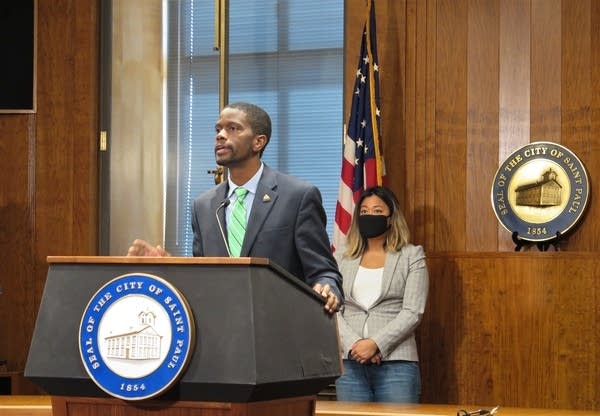St. Paul families to receive $500 a month in pilot program this year

St. Paul Mayor Melvin Carter (left) introduces the city's new plan to give a guaranteed income of $500 a month to 150 St. Paul families at a press conference on Thursday, as city councilmember Mitra Jalali observes. The plan will last 18 months and is set to begin this fall.
Peter Cox
Go Deeper.
Create an account or log in to save stories.
Like this?
Thanks for liking this story! We have added it to a list of your favorite stories.


